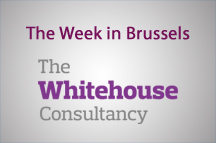 After the conclusion of the less-than-satisfactory third round of Brexit negotiations, it was back to business in the Brussels bubble. Whilst Brexit dominates the airwaves and commentarial on this side of the channel, back over on the continent, some other issues caught attention this week.
After the conclusion of the less-than-satisfactory third round of Brexit negotiations, it was back to business in the Brussels bubble. Whilst Brexit dominates the airwaves and commentarial on this side of the channel, back over on the continent, some other issues caught attention this week.
Trouble on the Eastern Horizon
Many UK-based pundits believe that Brexit presents the biggest challenge for the future of the European project, but some might argue that the real trouble lays elsewhere: political developments in Hungary and Poland have caused many headaches in the Commission and beyond.
This week, it was reported that the Commission will ask EU governments to discuss Poland and the rule of law at the next general affairs council later this month, whilst European Commission President Jean-Claude Juncker sent Hungary’s Victor Orbán a friendly reminder of all the ways the Commission supplied or offered money to Budapest to help manage migration – and that EU subsidies amount to more than two percent of Hungary’s GDP.
Immigration, Immigration, Immigration
 Another blow for Hungary: On Wednesday, the European Court of Justice ruled against Hungary and Slovakia’s appeal against the EU decision to relocate refugees from Greece and Italy. The Court finds that the scheme helps the two countries to deal with the impact of the 2015 migrant crisis and is proportionate.
Another blow for Hungary: On Wednesday, the European Court of Justice ruled against Hungary and Slovakia’s appeal against the EU decision to relocate refugees from Greece and Italy. The Court finds that the scheme helps the two countries to deal with the impact of the 2015 migrant crisis and is proportionate.
This announcement came on the same day as immigration was top of the agenda in the UK as the Guardian obtained a leaked Home Office document, detailing a much stricter immigration policy for EU nationals after the end of the Freedom of Movement post Brexit. Whilst the ECJ ruling might deter some wishing to campaign for a more liberal immigration arrangement with the European Union, just a quick reminder: before Brexit, the UK and Ireland had already secured an opt-out from the refugee quota scheme.
Strong and Stable
Last Sunday evening, German viewers had the chance to watch Chancellor Angela Merkel go head-to-head with her Social Democratic rival and former European Parliament President Martin Schulz. The latter, known in Brussels for his passion and charisma, struggles to keep up with Merkel, who does what she does best: offering probably the most boring, yet reassuring performance throughout the election battle. Whilst it is expected that Merkel, together with French president Emmanuel Macron, will initiate far-reaching European reform after the new government is formed, there is little to no debate on these big issues in her campaign. The German media and opposition politicians are getting impatient and accusing her of putting the whole nation to sleep.
State of the Union
European Commission President Jean-Claude Juncker will deliver his State of the Union speech on September 13th in Strasbourg. The speech reportedly will give an update on Brexit and discuss migration and security.














